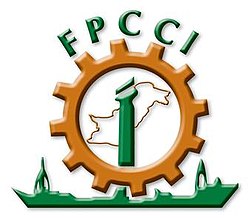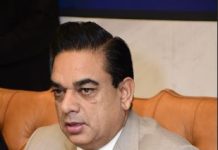KARACHI, MAR 4 /DNA/ – Atif Ikram Sheikh, President FPCCI, has expressed his profound concerns that the renewable energy policy 2006 is not being implemented in letter & spirit as costlier and obsolete power projects are still being given preference – while it makes no economic sense to purchase power for the national grid from costlier plants in these times of stagflation, mounting circular debt and burgeoning balance of payments (BoP) &depleting foreign exchange reserves (FER) even further through importing furnace oil.
FPCCI Chief noted that this phenomenon is not only discouraging for foreign direct investment (FDI) in energy sector; but, also inflicting financial losses on the existing wind power plants (WPP) in a number of ways: (i) return of investment (ROI) is compromised (ii) curtailment and lack of off take by the national grid is causing operational losses (iii) future investments, JVs and expansion plans are in jeopardy.
Mr. Atif Ikram Sheikh stressed that special investment facilitation council (SIFC) has made energy as their one of the five focus areas; and, lack of enabling, facilitative and protective environment is detrimental to the cause of SIFC – for which all stakeholders of the state have unanimity including private-sector.
Mr. Fawad Jawed, Convener of FPCCI’s Central Standing Committee on Renewable Energy, maintained that affordable, clean and green renewable energy generated through wind power in Pakistan provides clean energy at a competitive tariff of PKR. 14.7 per kWh; significantly undercutting the cost of RLNG, RFO and coal-fired power plants.
Mr. Fawad Jawed apprised that 12 wind power projects in Jhimpir Wind Corridor have been commissioned since 2021; with a total capacity of 610 MW. Nonetheless, these plants are being subjected to unfair treatment due to curtailment and reduced off take into the national grid despite the assurances provided under the Renewable Energy Policy (RE Policy) 2006, which categorized them as “must-run” plants. This discrepancy has led to loss of cheap electricity as the national grid and power consumers are missing out on affordable clean energy; leading to higher electricity costs and increased reliance on expensive fossil fuels.
Mr. Fawad Jawed also pointed out that fulfillment of Pakistan’s sustainable energy goals is being compromised; whereas, country’s goal of 50 percent emissions reduction by 2030 hinges on clean energy expansion. However, excessive wind project curtailments jeopardizing both the emissions reduction targets and expansion of renewables to 30 percent of the national power generation basket by 2030 will not be achieved – which has been set under alternative & renewable energy policy (ARE Policy 2019).
Mr. Fawad Jawed urged to prioritize immediate and complete off take of power from existing, operational wind projects. This aligns with both the RE Policy 2006 –pursuant to which domestic and foreign investment had taken place – and the existing EPAs.
Mr. Asif Inam, VP FPCCI & Chairman APTMA, elaborated that impact due to underutilization of capacity must be addressed as wind power plants have a capacity factor of around 38 percent. Once this capacity is achieved, project tariff drops significantly, offering exceptionally cost-effective electricity to the grid; i.e. the electricity – over and above 38% capacity factor – will be available to the purchaser starting from 5 percent of the effective tariff; i.e. which is PKR. 0.75 per kWh. However, underutilization due to the limited off take prevents this benefit from being passed on to the consumers, he added.

















